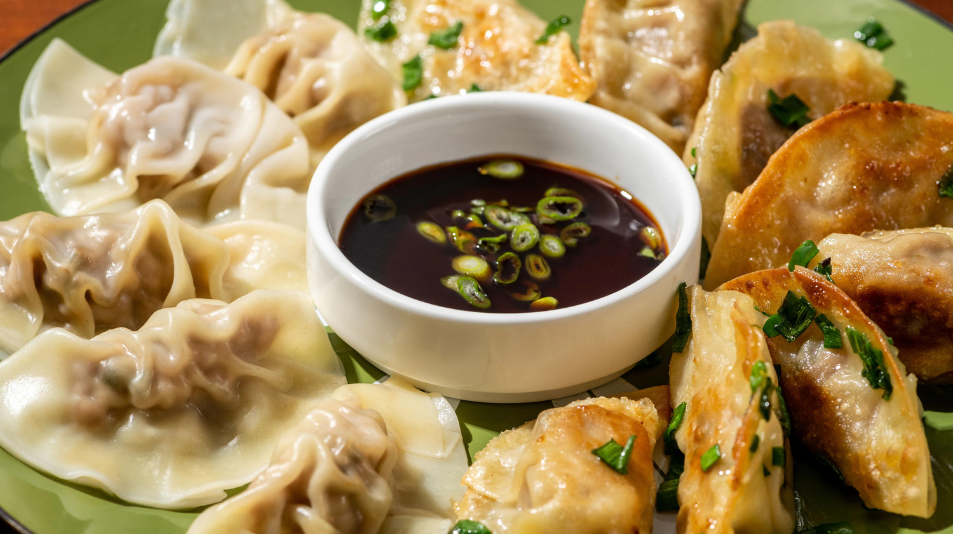
Chinese Restaurant Under Investigation for Encouraging Customers to Consume 108 Dumplings
“Jiaozi”, or Chinese dumplings, are a cornerstone of China’s culinary heritage. These dumplings originate from China and feature a unique composition. They typically contain a filling of ground meat or vegetables, carefully encased in a thin dough sheet. The process involves sealing the dough by pressing the edges together, creating a neat package. Once prepared, the jiaozi offer versatility in cooking methods. They can be boiled, steamed, pan-fried, or even deep-fried. Traditionally, they are served with a dipping sauce made from black vinegar and sesame oil. Alternatively, they can also be a key ingredient in a hearty soup.
The Historical Roots of Jiaozi
The rich history of jiaozi, a staple in Chinese culture, traces back to the Eastern Han era (AD 25–220). Zhang Zhongjing, a renowned traditional Chinese medicine practitioner, is credited with their invention. Initially, these dumplings, known as “tender ears”, served a medicinal purpose – treating frostbitten ears. Zhang Zhongjing would stew lamb, black pepper, and warming herbs, finely chop this mixture, and encase it in small dough wrappers. He would then boil these dumplings and serve them, along with the broth, to his patients. This practice continued until the arrival of the Chinese New Year. To commemorate the New Year and aid in the recovery from frostbitten ears, people began to replicate Zhang’s recipe, giving birth to the tradition of making Jiao’er.
The Controversial Dumpling Eating Contest
A recent event in China has ignited a debate on food waste. In Yibin city, nestled in Sichuan province, a restaurant introduced an unusual challenge. The contest, known as the “king of big stomach challenge”, required customers to consume more than 100 Chinese dumplings for a chance to win a free meal. The dumplings in question were chaoshous, a type of spicy wonton dumpling. The goal was to eat 108 of these dumplings as quickly as possible to secure not only a free meal but also additional prizes. To attract customers, the restaurant advertised this unique offer on social media. However, this marketing tactic led to unintended consequences. The State Administration for Market Regulation launched an investigation into the restaurant’s practices to ascertain whether it had violated China’s stringent anti-food waste law.
The Sensitivity of Eating Contests in China
Eating contests are a common spectacle in Western countries. However, in China, they’re viewed as a sensitive issue. This sensitivity stems from the memories of the 1950s and 60s famine. This devastating period led to the deaths of an estimated 45 million people. In response to these concerns, China enacted an anti-food waste law in 2021. This law was a reaction to criticisms of online bloggers. These bloggers were live-streaming themselves binge eating to garner viewers. The law stipulates that restaurant owners can face hefty fines. Specifically, they can be fined up to 10,000 yuan ($1,400). This penalty applies if their establishments induce or mislead customers to order excessively, leading to obvious waste.
Public Reaction and Food Safety Concerns
Despite the controversy, some Chinese internet users have criticised the authorities for overreaching. They argue that the food not consumed in such contests would not necessarily go to the poor. Others have pointed out the country’s poor track record on food safety, which has included scandals ranging from contaminated baby milk powder to the use of “gutter oil” – recycled oil tainted with food waste or even sewage.
Conclusion: Striking a Balance
In wrapping, the “king of big stomach challenge”, centred around consuming a large quantity of Chinese dumplings, began as a marketing strategy for the restaurant. However, it unintentionally sparked a broader dialogue on food waste and dietary habits in China. As the country grapples with these issues, the necessity for a balanced approach becomes clear. This incident underscores the significance of mindful consumption, particularly when it comes to cherished food items like Chinese dumplings, and the part each person can play in addressing food waste.


